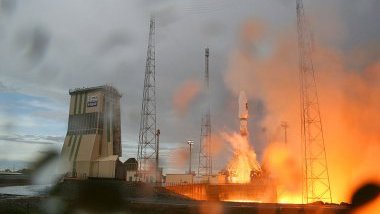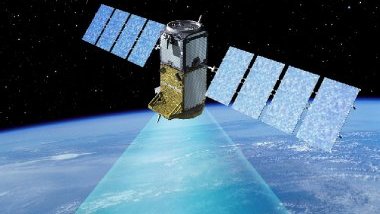Space is a major concern for the EU. This field demands a large budget and a reconciliation of national sovereign ambitions, but commissioner Elżbieta Bieńkowska managed to address the challenge. That challenge was all about changing the European Commission from an entity financing space programs into a political authority in charge of a global space strategy. This space-focussed EU is on the verge of becoming an indispensable player on the international scene: a record accuracy of 20 cm, a technology that is essential for everyday life, for the development of connected transport, for agriculture or air navigation... The stakes are, beyond the economy, deeply political and geo-strategic.
An instrument of European sovereignty
About 10% of EU’s economy depends on the availability of navigation signals, and the market of navigation services should stand for no less than 250 billion euros in 2022. Aside from the economic importance, military use makes of Galileo an instrument of sovereignty for the European Union and each of its member states. Even if Europe’s military progress struggles speed-wise, all agree about the importance of the space program: France has offered the infrastructures of the main centre for security of the program within a French military camp in Saint-Germain-en-Laye.
Space policies of countries like the US or China, once open for voluntary cooperation, are now oriented towards economic competition contradicting this logic of support. A sovereign Europe could be the solution to the geopolitical and competitive excesses encountered on the international scene. Sovereignty, which in broad terms constitutes security for all Europeans, implicates security of supply, mastering of technologies and high-end industries, control over their transfers, protection of sites and networks against piracy, as well as European and rapid command control.
Maroš Šefčovič, vice-president of the Commission, stated: ‘Space is becoming a new frontier [for Europe]. We must do all we can to lead the EU to the rank of global leader and to strategic autonomy.’
Space: a major stake for the EU
The EU must play a major role in a key sector such as space. The Member states must be able to launch satellites and get access to their data all the while staying on top of worldwide progress. Every day, European citizens use about fifty satellites to get information about the weather, the news and the like. Even though Galileo and Copernicus were real successes, the competition is exploding: the EU’s space budget is four to six times smaller than that of NASA, which allows Americans to stay ahead in the civilian and military fields, along with billionaire launchers such as Elon Musk (SpaceX) and Jeff Bezos (Blue Origin).
The Helios Program, made out of observation satellites, allows the Union to have autonomous means of surveillance and to manage space traffic. This European ambition helps to address growing military needs in intelligence and space data. “The Europe of defence” is only making its first steps, but it is very present in the spatial field with a joint space command at the defence headquarters. The EU has an advantage thanks to its overseas territories, its high-end technology, and a common will of its member states. It is all about seeing what Europe can offer when all parties agree and cooperate, but also about identifying efforts needed to stay ahead.
Elżbieta Bieńkowska said: ‘We can be proud of the success of our spatial activities. Europe has become a real space power. Since the start of my mandate, I had clear goals: to develop infrastructure within a defined time frame and within the limits of the budget, to deliver the first services, and to ensure a quick growth. Today, we can say it. We did it. But we will have to put further efforts and investment into the new European space program.’
The Brits are excluded from this project
The European satellite is a sector of central sovereignty for the EU. Only companies based in the member states are allowed to answer calls for tenders for the Galileo program. Two years ago, when Brits voted in favour of Brexit, the aftermath of that vote was not clear. British companies are now excluded from calls related to the encrypted part of Galileo, without upsetting London. Important contracts that the British industry could have got on this project are now out of reach. In fact, European authorities do not agree to give access to strategic security intelligence to third parties. The British government now tries to put pressure on these aspects of defence and industry in the Brexit negotiations.
If excluded from Galileo, the United Kingdom threatens the EU with launching its own competing system. However, this idea does not appear to be credible or possible, especially from a financial point of view. This is yet another inconvenient, silenced aspect of Brexit.




Follow the comments: |
|
